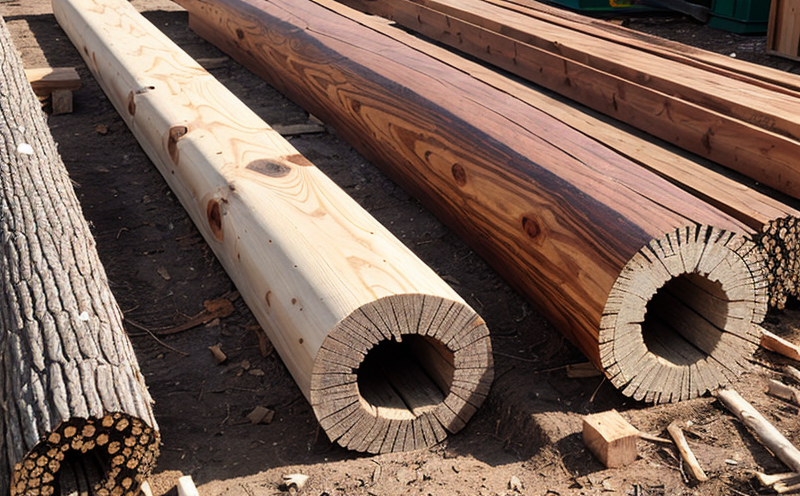Soft Rot Fungi Resistance Testing in Wood
The resistance of wood to soft rot fungi is a critical factor in ensuring the longevity and durability of wooden structures. Soft rot fungi are saprophytic organisms that cause significant degradation of wood, leading to structural failure if not properly addressed during design and construction processes. This service involves testing how well various types of wood resist attack by these fungi over time. It’s essential for quality managers, compliance officers, R&D engineers, and procurement specialists who need to ensure the integrity of wooden components in structures like buildings, bridges, railway sleepers, and fence posts.
The process begins with selecting representative samples of different wood types that are likely to be used in specific applications. These samples undergo controlled exposure to fungi under standardized conditions, simulating real-world environmental factors such as temperature, humidity, and exposure duration. The test apparatus typically includes climate chambers capable of maintaining precise control over these parameters.
The testing process usually involves several stages:
- Sample Preparation: Wooden samples are cut into standard sizes and shapes relevant to their intended use in construction or other applications.
- Fungal Inoculation: Samples are inoculated with specified strains of soft rot fungi, ensuring consistent biological inputs for all tests.
- Incubation Periods
Industry Applications
The results from this testing service have wide-ranging applications across various sectors including construction, furniture manufacturing, and environmental conservation. Here’s a table summarizing the key industries benefiting from such tests:
| Industry Sector | Description of Industry Benefit |
|---|---|
| Construction | Evaluating longevity of structural components like beams and columns. |
| Furniture Manufacturing | Assuring quality and durability of wood furniture. |
| Environmental Conservation | Supporting efforts to preserve natural resources through sustainable practices. |
This testing ensures that the chosen species of wood can withstand fungal attack, thereby extending its useful life in critical environments. By understanding which woods are more resistant, designers and manufacturers can make informed decisions about material selection, ensuring both cost-effectiveness and sustainability.
Environmental and Sustainability Contributions
The ability to accurately assess wood's resistance to soft rot fungi plays a crucial role in promoting environmental sustainability. By preventing premature degradation due to fungal attack, this service helps reduce waste associated with the replacement of damaged wooden structures or components. This contributes positively towards reducing deforestation pressures by encouraging the use of sustainably sourced woods.
- Reduces Waste: Prevents unnecessary replacements caused by fungal damage.
- Encourages Sustainable Practices: Supports the responsible use of natural resources.
Moreover, this testing contributes to energy efficiency improvements as it aids in selecting woods that require less maintenance, thus reducing the overall lifecycle carbon footprint. The service also supports regulatory compliance with international standards such as ISO and ASTM, which provide benchmarks for quality assurance across different regions.
Use Cases and Application Examples
This testing is particularly useful in scenarios where long-term durability of wooden structures or components is crucial. Some specific use cases include:
- Bridges: Ensuring the integrity of bridge supports against moisture and fungal decay.
- Building Facades: Guaranteeing exterior cladding remains intact over extended periods despite exposure to elements.
- Fence Posts: Providing durable support for fencing systems in harsh outdoor conditions.
In each case, the test results help inform design choices that balance aesthetics and functionality while minimizing long-term maintenance costs. For instance, a bridge designer might choose a wood type known to have higher resistance based on these tests, potentially leading to lower replacement rates and reduced environmental impact.





